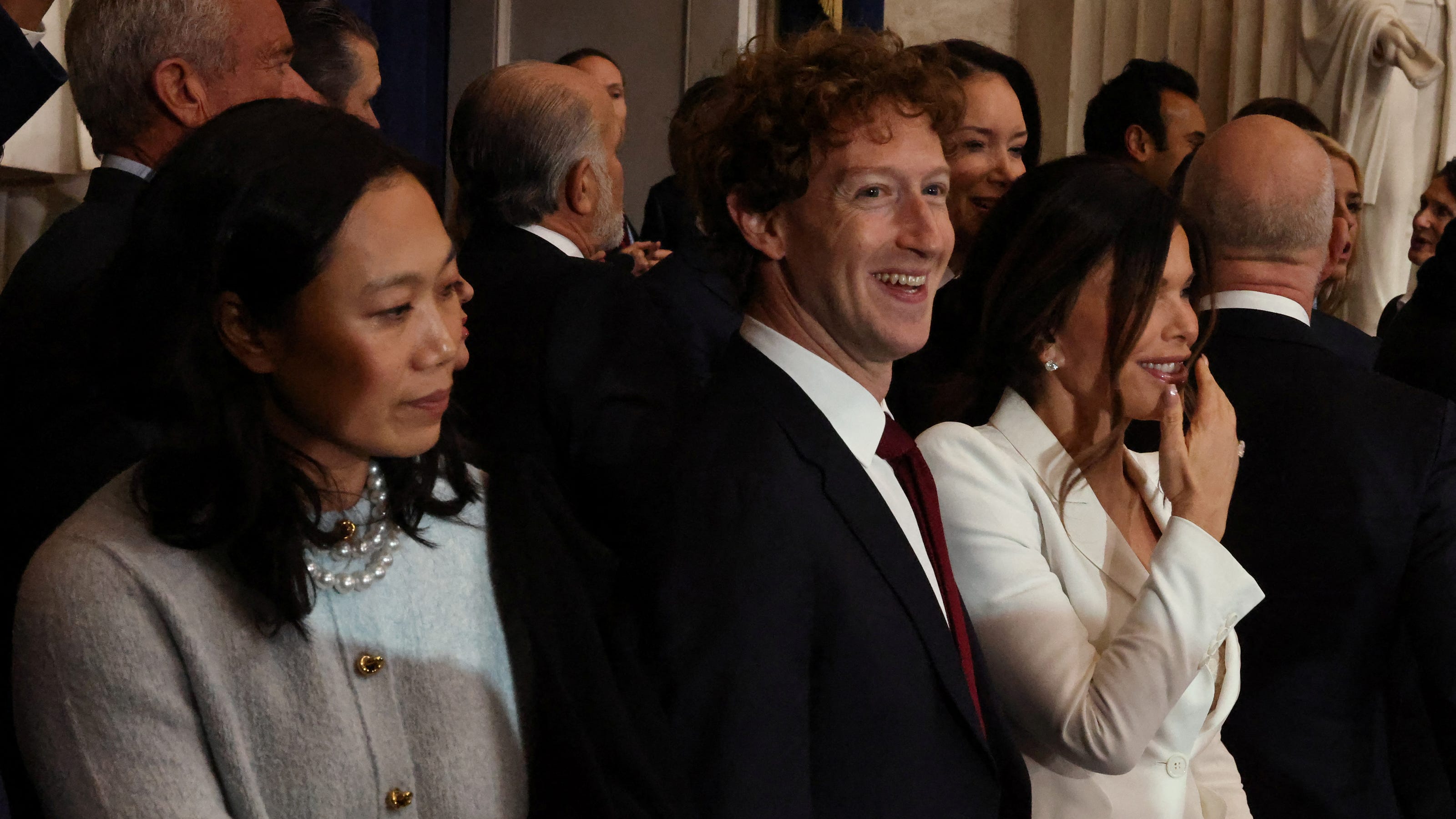Mark Zuckerberg And The Trump Administration: A New Era For Meta

Table of Contents
The Trump Administration's Scrutiny of Meta
The Trump administration’s time in office presented numerous challenges for Meta. The company faced intense pressure from all sides, grappling with accusations, investigations, and increasing regulatory burdens.
Allegations of Russian Interference and Election Meddling
The 2016 US Presidential election became a focal point of scrutiny for Meta. Investigations into Russian interference, and the platform's alleged role in spreading disinformation, dominated headlines.
- Cambridge Analytica scandal: This data breach exposed the vulnerability of user data and raised serious questions about Meta's data privacy practices. The scandal significantly damaged Meta's reputation and fueled calls for stricter regulation.
- Zuckerberg's congressional testimony: Mark Zuckerberg's appearances before Congress highlighted the challenges of regulating online platforms and the difficulty of balancing free speech with the prevention of harmful content.
- Increased regulatory pressure: The investigations led to increased regulatory scrutiny from both US and international bodies, pushing Meta to implement new safety measures and policies.
Content Moderation and Free Speech Debates
Content moderation emerged as a central battleground. Meta's policies on removing or restricting content became a source of constant debate, particularly concerning the balance between free speech and the prevention of misinformation and hate speech.
- Banning of Donald Trump: The decision to ban Donald Trump from Meta's platforms after the January 6th Capitol riot sparked intense debate about the power of tech companies to moderate political discourse.
- Controversies over censorship: Accusations of censorship from both the left and right intensified, highlighting the complexities of content moderation in a polarized political environment.
- Challenges in global content moderation: Meta's struggles to consistently apply its content moderation policies across different countries and cultures underscored the global challenges faced by large online platforms.
Antitrust Concerns and Regulatory Challenges
The Trump administration also launched antitrust investigations into Meta, raising concerns about its monopolistic practices and the impact of its acquisitions on competition.
- FTC lawsuits: The Federal Trade Commission (FTC) launched lawsuits against Meta, alleging anti-competitive behavior. These lawsuits threatened to significantly reshape Meta's business model.
- Concerns over monopolistic practices: Critics argued that Meta's dominance in social media stifled competition and limited consumer choice.
- Impact on Meta's acquisitions: The scrutiny around acquisitions like Instagram and WhatsApp raised concerns about Meta’s ability to continue its growth strategy through acquisitions.
Meta's Strategic Response and Policy Adjustments
Faced with immense pressure, Meta responded with a series of strategic changes aimed at improving its public image, enhancing user safety, and navigating the evolving regulatory landscape.
Increased Investment in Transparency and Safety Initiatives
Meta significantly increased investment in transparency and safety initiatives, aiming to demonstrate its commitment to combating misinformation and hate speech.
- New content moderation policies: Meta implemented new policies and guidelines for content moderation, aiming for greater consistency and transparency.
- Investment in AI-powered detection systems: The company invested heavily in artificial intelligence (AI) to improve its ability to detect and remove harmful content.
- Efforts to combat misinformation: Meta launched numerous initiatives to combat the spread of misinformation and fake news on its platforms.
Shifting Focus to Emerging Technologies
The political climate also influenced Meta's strategic shift towards emerging technologies, particularly the metaverse and virtual reality (VR)/augmented reality (AR).
- Investment in Oculus: Meta's significant investment in Oculus, its VR headset division, demonstrates its commitment to this emerging technology sector.
- The rebranding to Meta: The company’s rebranding from Facebook to Meta signaled its ambitious long-term vision for the metaverse as its next major platform.
- Long-term vision for the metaverse: The metaverse represents a strategic pivot away from some of the controversies surrounding its social media platforms.
Engagement with Government Regulators
Meta actively engaged with government regulators, attempting to influence legislation and address concerns raised by lawmakers.
- Lobbying efforts: Meta invested heavily in lobbying efforts to influence policy decisions impacting the company.
- Public relations campaigns: The company launched public relations campaigns to improve its image and address criticism.
- Attempts to influence legislation: Meta actively participated in legislative processes to shape regulations affecting online platforms.
The Lasting Impact on Meta's Trajectory
The Trump era left an indelible mark on Meta's trajectory, shaping its policies, strategies, and public perception for years to come.
Long-term implications for content moderation
The controversies surrounding content moderation have forced Meta to constantly refine its approach, leading to a more cautious and complex content moderation system.
The evolving relationship with government
The relationship between Meta and governments worldwide remains tense, with ongoing debates about regulation and oversight.
The future of Meta in a changing political landscape
The lessons learned during the Trump era will continue to shape Meta's approach to navigating the complexities of the political landscape. The company’s future success hinges on its ability to adapt to evolving regulations and maintain its users' trust.
Conclusion
The relationship between Mark Zuckerberg, the Trump administration, and Meta has been a defining chapter in the history of social media. The intense scrutiny, legal battles, and public criticism have fundamentally reshaped Meta’s operations and policies. The company's response, encompassing increased investment in safety measures, a strategic shift toward emerging technologies, and active engagement with regulators, demonstrates its efforts to adapt to a changing political landscape. To further understand this complex relationship and the ongoing challenges facing Meta, research the evolution of Meta's policies on content moderation, its ongoing interactions with government regulators, and the future of the metaverse. Understanding these elements is key to understanding the future of Meta itself.

Featured Posts
-
 Teddy Magics Britains Got Talent Appearance A Postponement Update
May 05, 2025
Teddy Magics Britains Got Talent Appearance A Postponement Update
May 05, 2025 -
 Britains Got Talent News On Teddy Magics Postponed Performance
May 05, 2025
Britains Got Talent News On Teddy Magics Postponed Performance
May 05, 2025 -
 Westbrook Cracks Top 20 In Nba Scoring Overtaking Kevin Garnett
May 05, 2025
Westbrook Cracks Top 20 In Nba Scoring Overtaking Kevin Garnett
May 05, 2025 -
 Icon
May 05, 2025
Icon
May 05, 2025 -
 Canelo Alvarezs May 3rd Event Bakole And Ajagba To Clash In Heavyweight Bout
May 05, 2025
Canelo Alvarezs May 3rd Event Bakole And Ajagba To Clash In Heavyweight Bout
May 05, 2025
